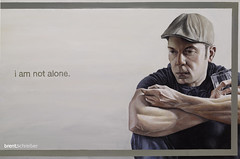Gender-specific recovery for men focuses on the recovery from addiction in the setting of a sober living house. It utilizes the characteristics most common to men to help them recover in a transitional living setting away from women, as men and women tend to face different issues during their recovery. Gender-specific recovery takes a “carefrontational” rather than a confrontational approach. It deals with the male tendency to have difficulty in communication, isolation and anger in a safe sober living environment. In a sober living house, men are not encouraged to numb their feelings and their angry emotions are re-directed toward team sports.
The sober living house creates an environment in which men are encouraged to challenge the core beliefs that they have lived by. It provides men with the space that they need to learn to feel safe enough to open up to each other, to be vulnerable, take risks, share their emotions, cooperate, and believe and accept the ideas of others while breaking the cycle of relying on women to meet their emotional needs. By creating this space, emotional movement happens. This gender-specific model uses five different modules to help men learn to return to sober living. These modules are:
- Being a Man— which looks at what being a man means and addresses stereotypes.
- The Family Origin and Fathers–takes a look at childhood messages that were sent by their fathers and begins to teach men to parent themselves.
- Interpersonal Violence, Anger, Rage, and Control–explores the distinctions between the emotion of anger and the action of aggression. This module teaches men to express anger in more acceptable ways.
- Sexuality–looks at sexual mores in a group setting because the connection between addiction and promiscuity is apparent. It allows men to look honestly at their beliefs about sexuality.
- Male Spirituality–Helps men to understand that spirituality is connecting to life, and addiction is about disconnecting from life. It requires men to develop trust and to rely on something outside of themselves in order to experience life and peace.
All five of these modules are used within the 12-step recovery program.
Just like male gender-specific recovery, female gender-specific recovery focuses on the personality characteristics most common to females and utilizes them within the 12-step program to assist recovering women in their return to sober living. Gender-specific recovery models can be found in many different sober living homes.

